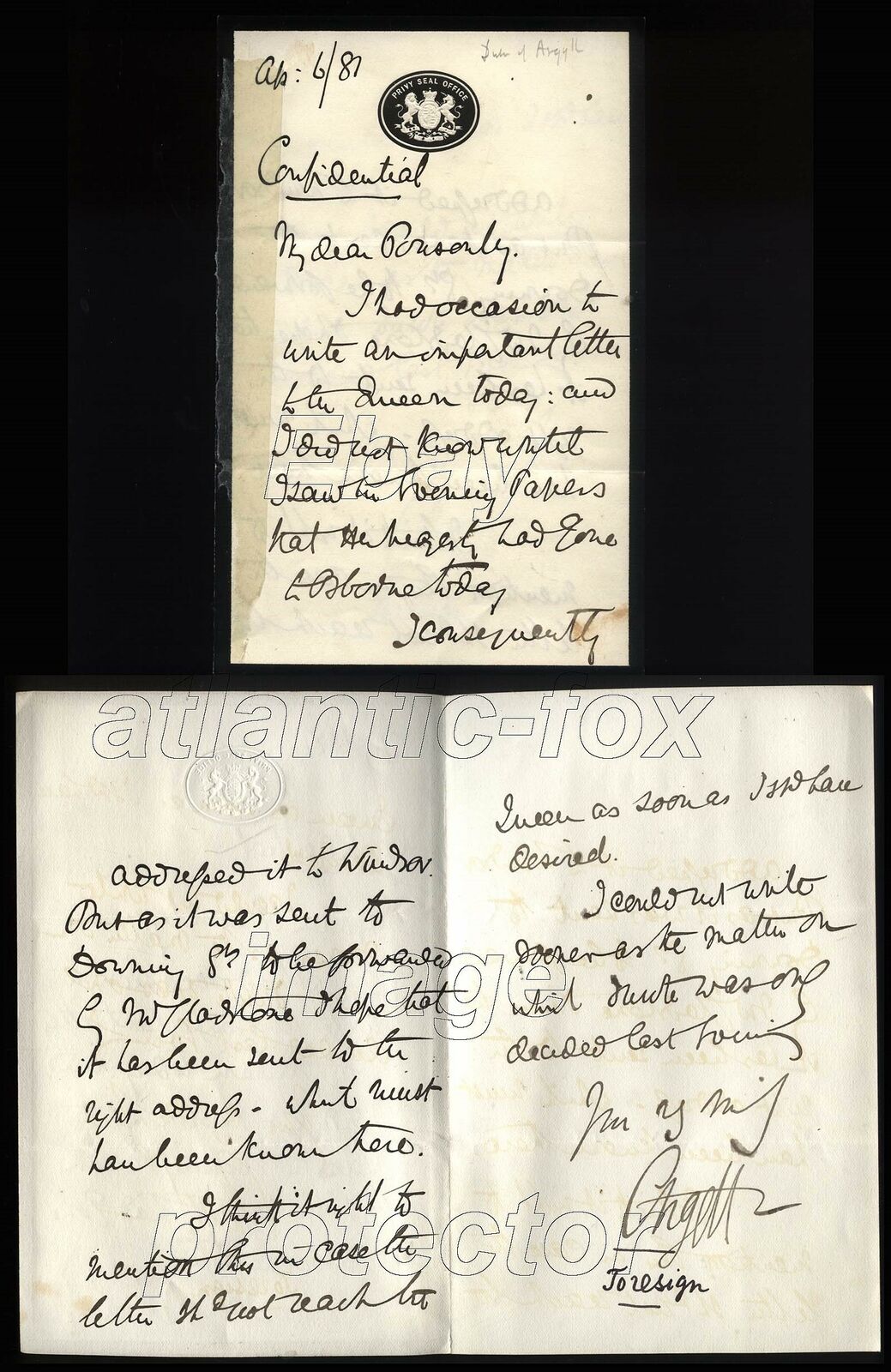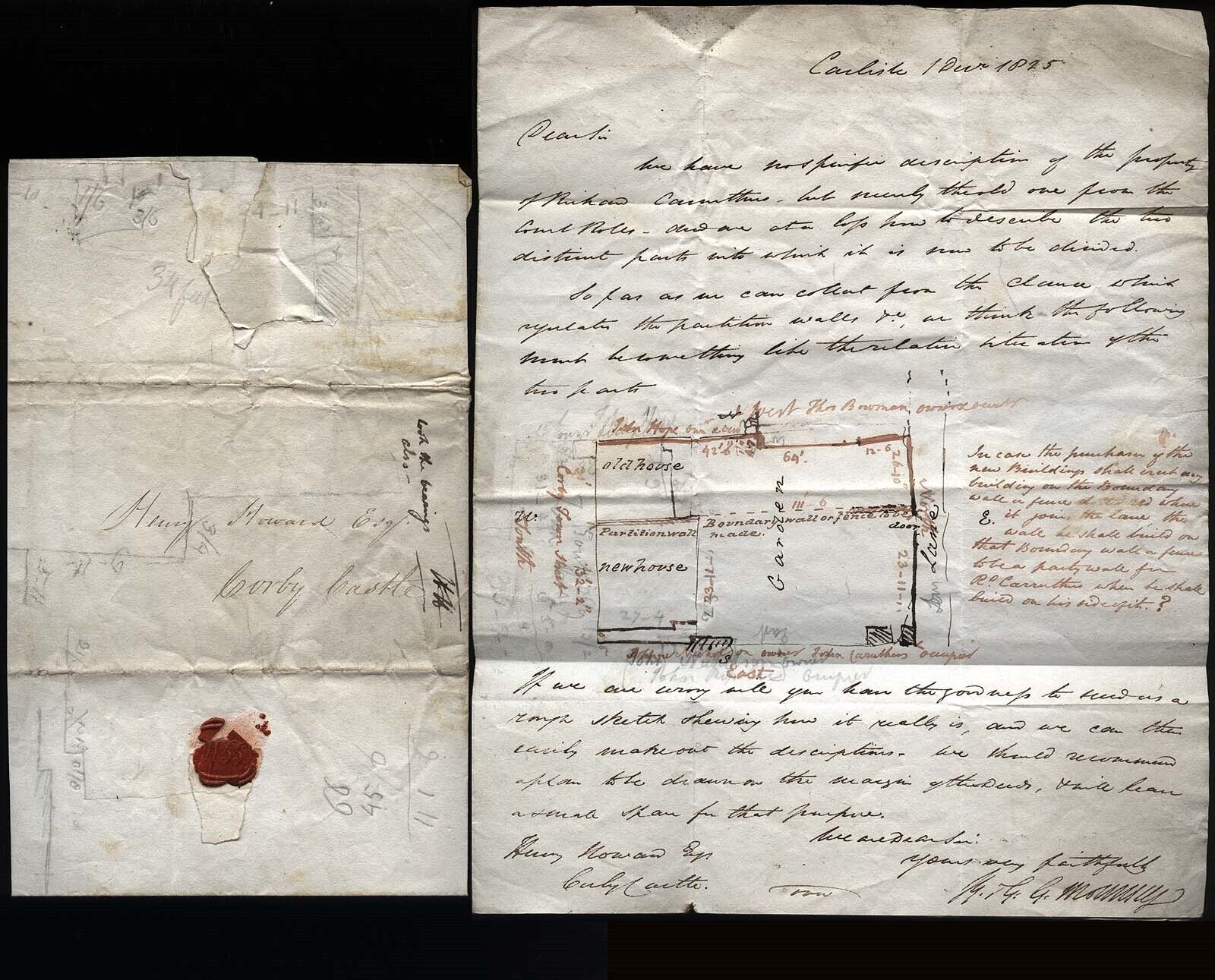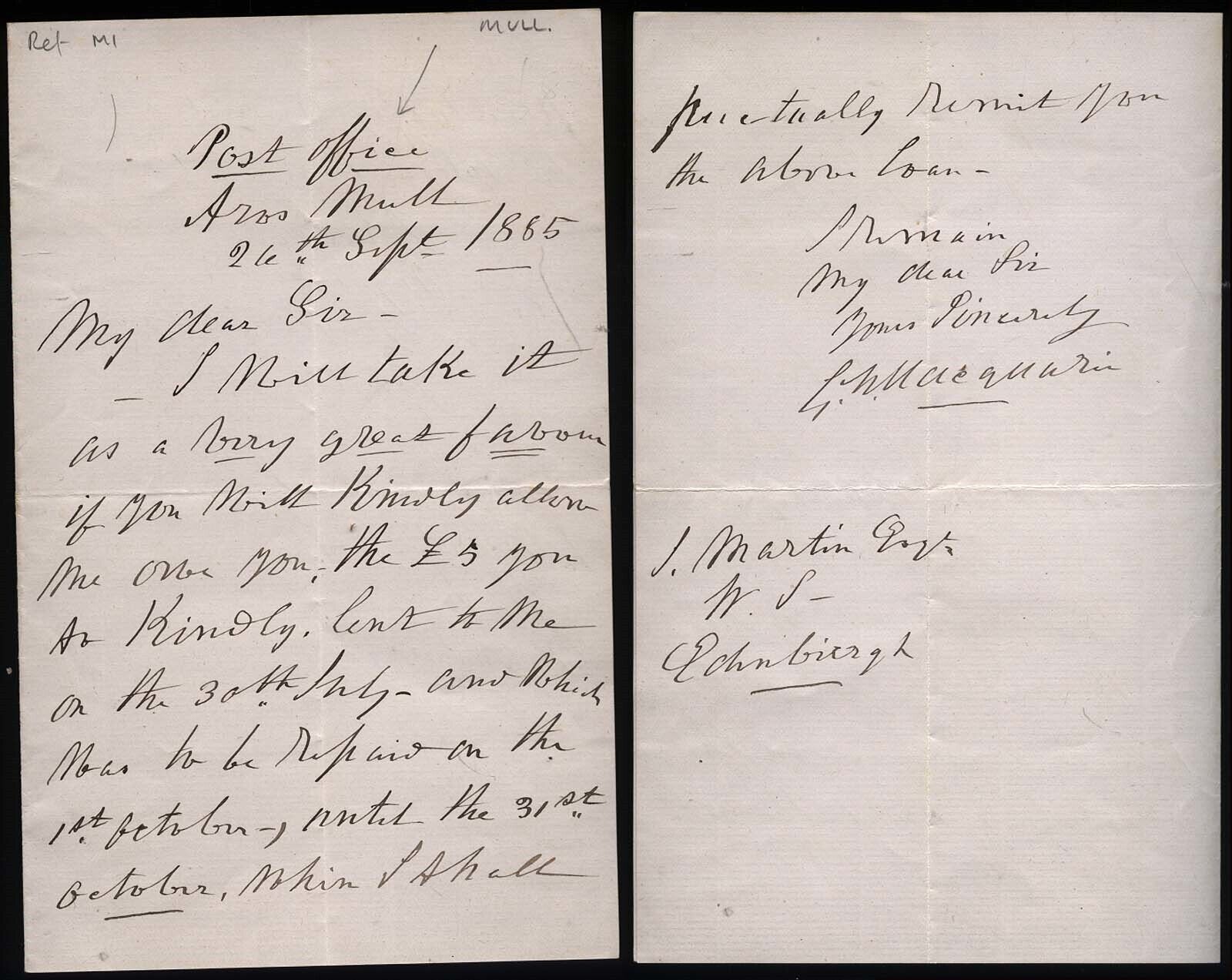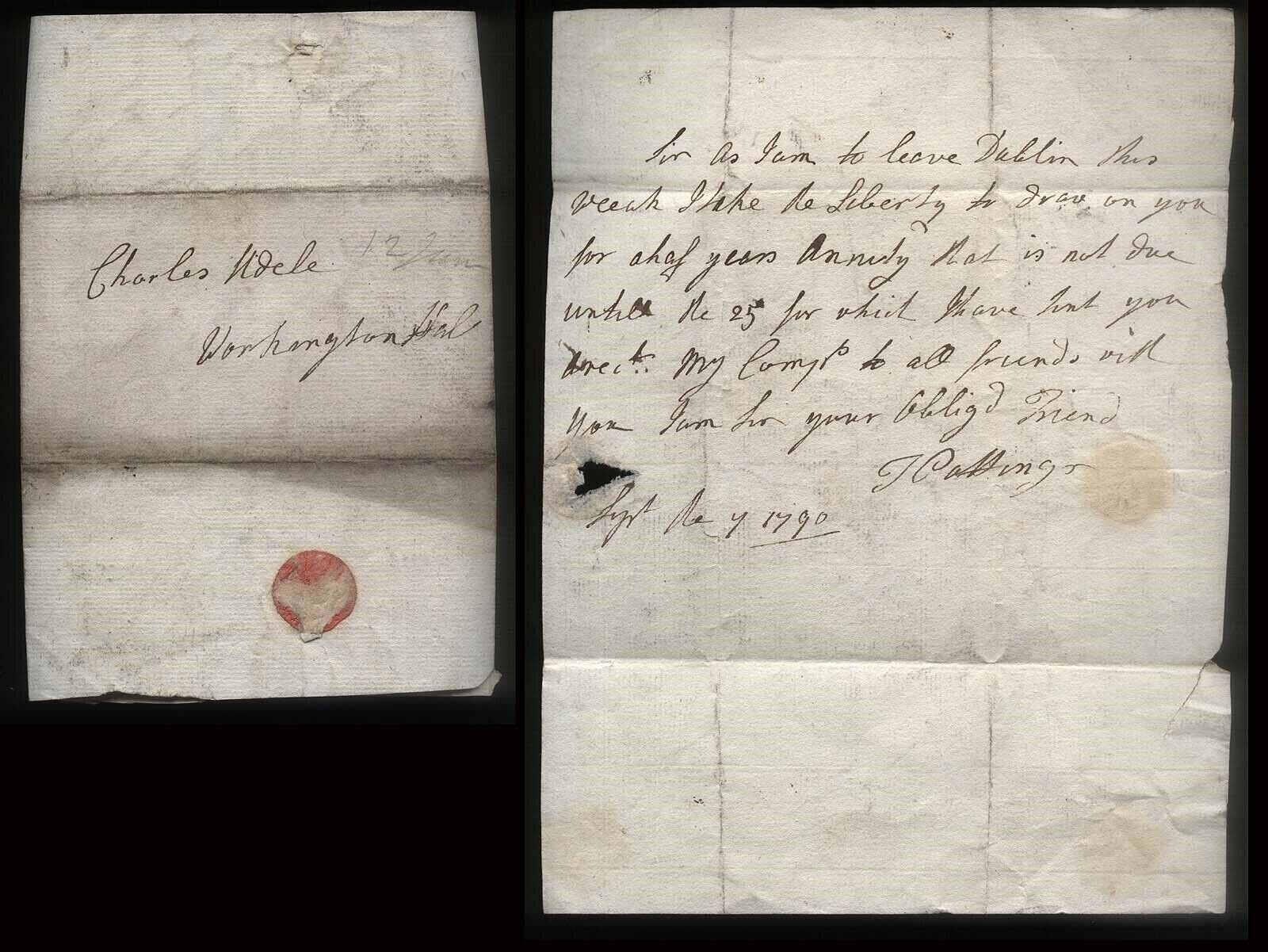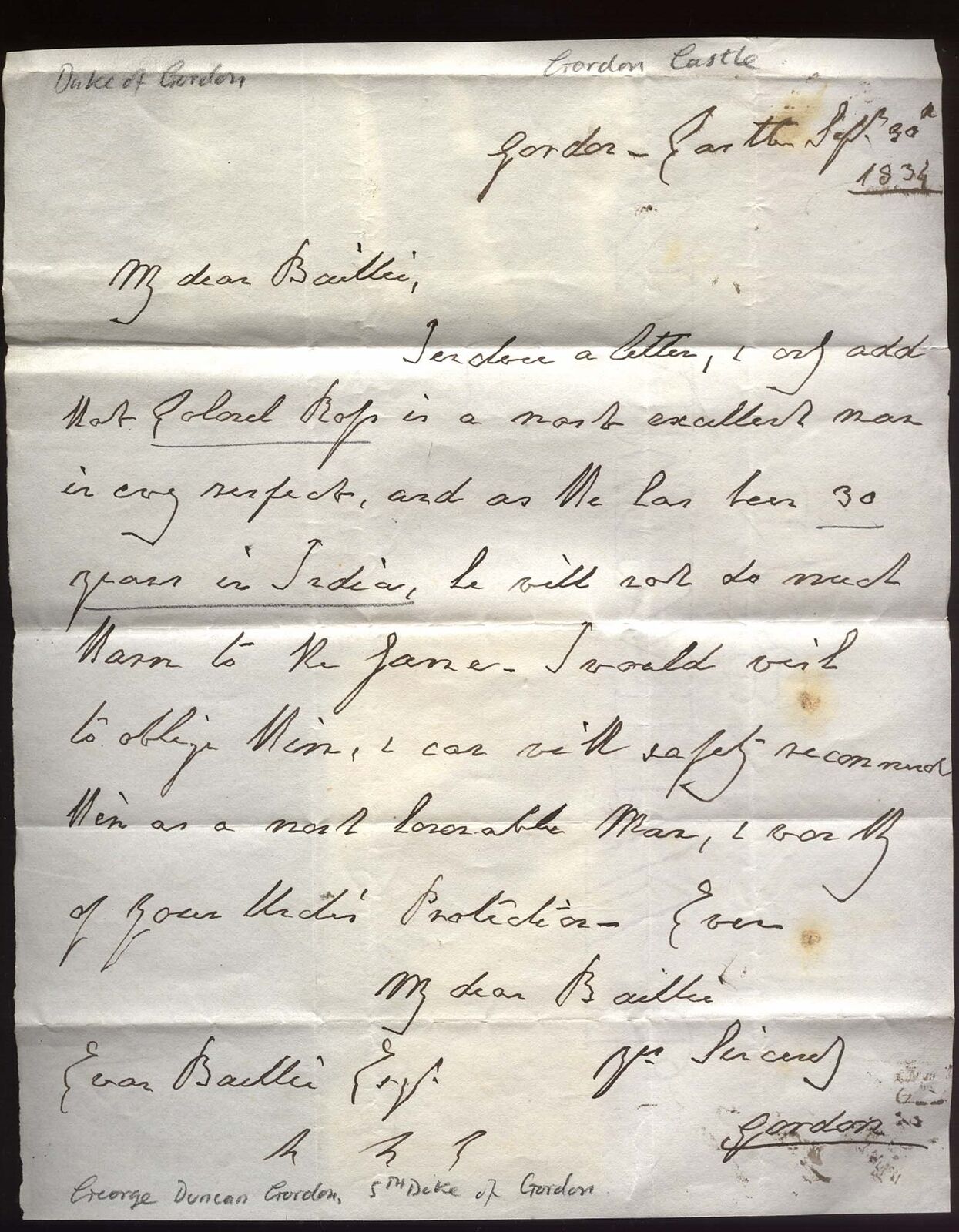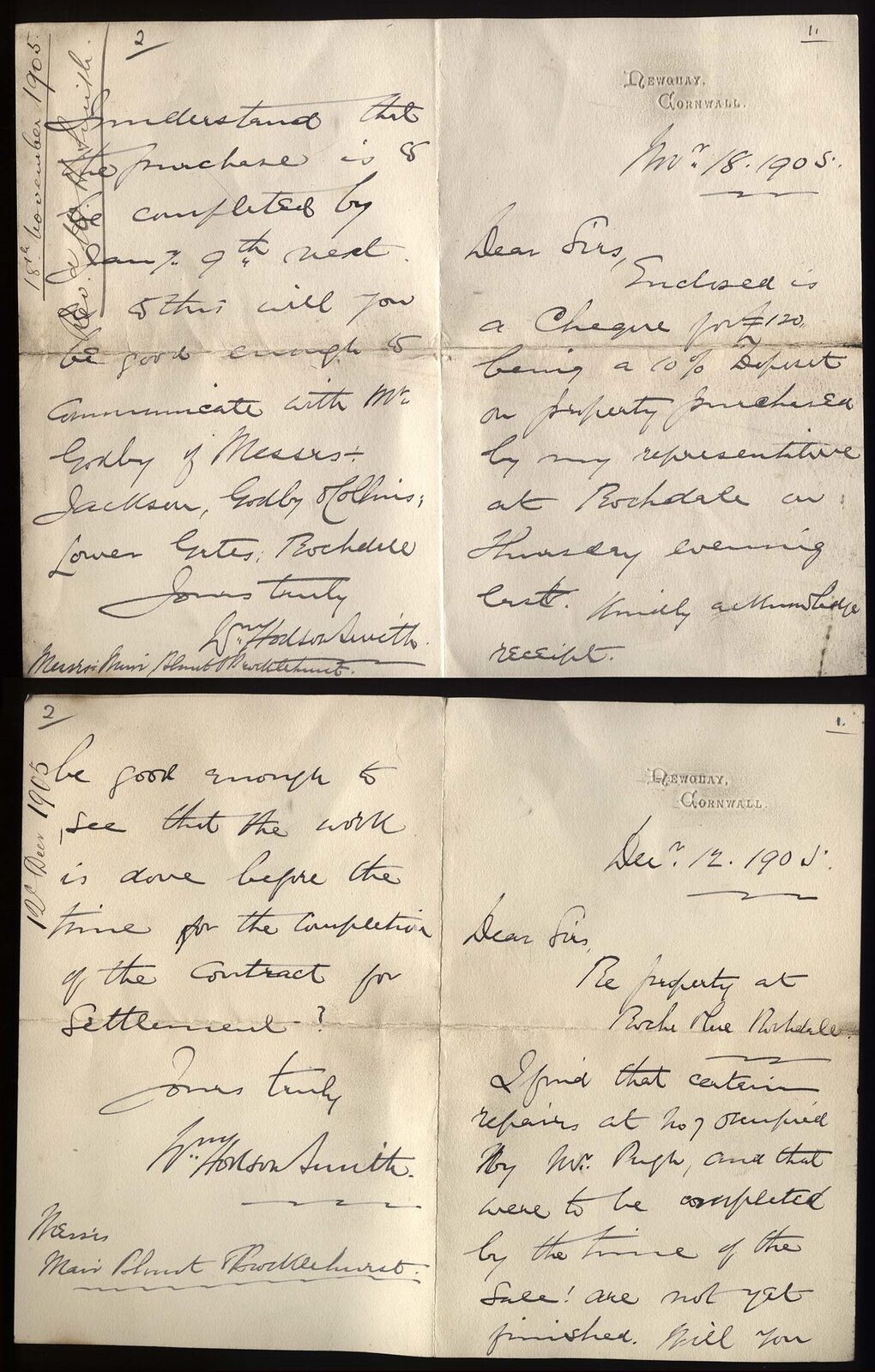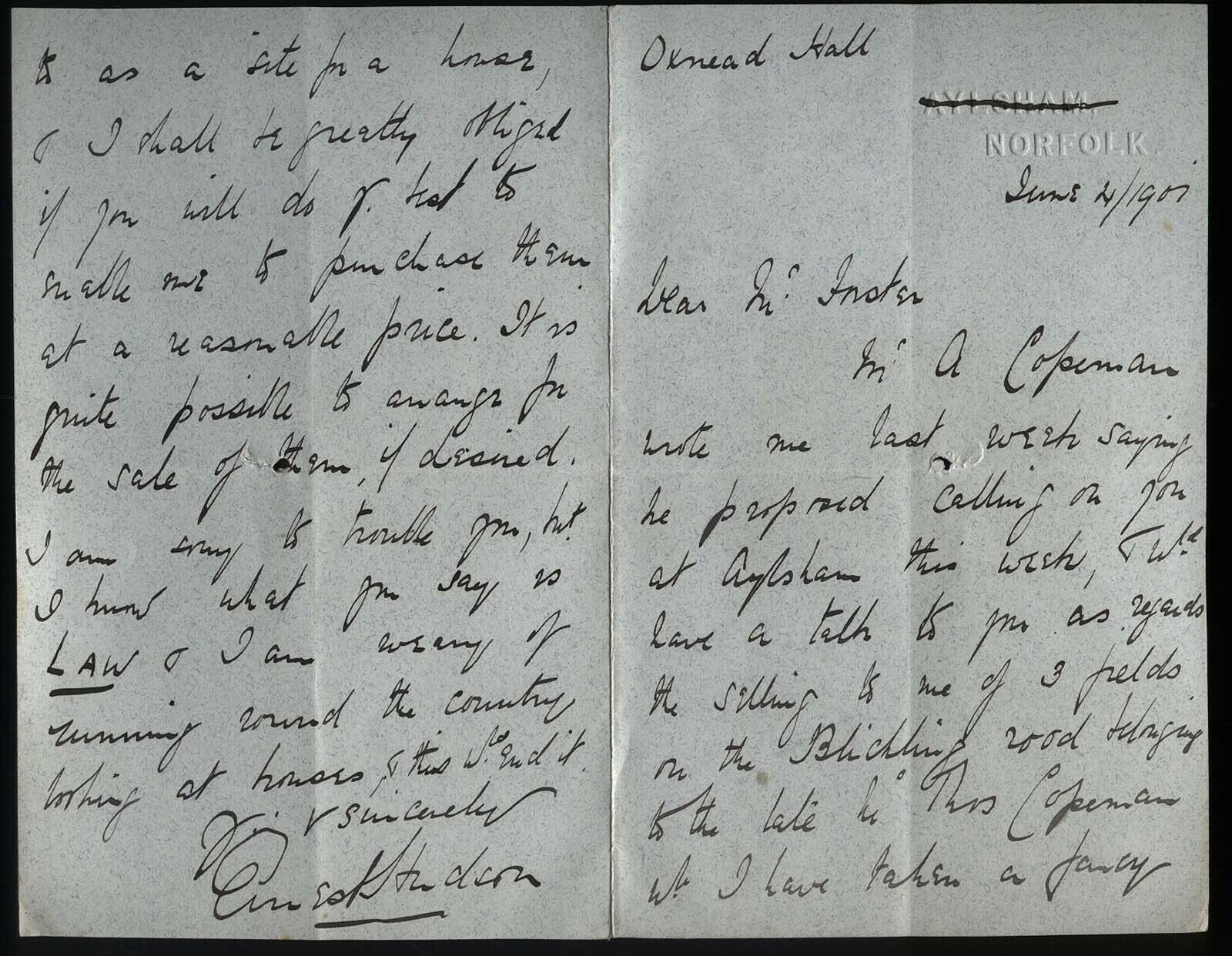-40%
1881 DUKE of ARGYLL his Resignation as Lord Privy Seal, letter to Queen Victoria
$ 319.91
- Description
- Size Guide
Description
1881 DUKE of ARGYLL his Resignation as Lord Privy Seal, letter to Queen VictoriaThis product data sheet is originally written in English.
1881 DUKE of ARGYLL his Resignation as Lord Privy Seal, letter to Queen Victoria, amazing letter dated 6th April 1881 on PRIVY SEAL OFFICE letterhead to Queen Victoria's private Secretary, Sir Henry Ponsonby.
"
Confidential
,
My dear Ponsonby,
I had occasion to write an important letter to the Queen today: and I did not know until I saw the evening papers that Her majesty had gone to Osborne today.
I consequently addressed it to Windsor but as it was sent to Downing St to be forwarde by Mr Gladstone I hope that it has been sent to the right address-what must have been known there.
I think it right to mention this in case the letter should not reach the Queen as soon as I should have desired. I could not write sooner as the matter on which I wrote was only decided last evening. yours very sincerely.
Argyll."
and underneath in Ponsonby's hand "to resign"
THE MINISTRY—RESIGNATION OF THE DUKE OF ARGYLL. HC Deb 08 April 1881 vol 260 c10291029
SIR STAFFORD NORTHCOTE I beg to ask the right hon. Gentleman the First Lord of the Treasury a Question, of which I have given him private Notice—namely, Whether it is trite, as reported in the daily Press, that the Duke of Argyll has resigned his Office, and that the cause of his resignation is a difference of opinion between himself and the other Members of Her majesty's Government with regard to the Irish Land Bill?
MR. GLADSTONE It is with the deepest concern, alike personal and political, that I have to state that it is true that the Duke of Argyll has resigned his Office, and that it is also true that the cause of his resignation has reference to the Land Law (Ireland) Bill. I ought, however, not to allow it to be supposed that his objection is to the whole of the Land Bill as it stands, because there are portions, and very important portions, of the Bill with regard to which the Duke of Argyll is quite at one with his Colleagues. There are, however, other portions which we regard as vital to the Bill, which are opposed to the known principles of the noble Duke, and his objections to those portions are so strong as to lead him to believe that they require his resignation
.
From Wikipedia, the free encyclopedia
George John Douglas Campbell, 8th Duke of Argyll, KG, KT, PC, FRS, FRSE (30 April 1823 – 24 April 1900
), styled Marquess of Lorne until 1847, was a Scottish peer and Liberal politician. He made a significant geological discovery in the 1850s when his tenant found fossilized leaves embedded among basalt lava on the Island of Mull. He also helped to popularize ornithology and was one of the first to give a detailed account of the principles of bird flight in the hopes of advancing artificial aerial navigation (i.e. flying machines). His literary output was extensive writing on topics varying from science and theology to economy and politics. In this respect, Argyll can be considered a polymath.
Argyll was born at Ardencaple Castle, Dunbartonshire, the second but only surviving son of John Campbell, 7th Duke of Argyll, and his second wife Joan Glassel, the only daughter of John Glassel.[1] Argyll succeeded his father as duke in 1847.[1] With his death he became also hereditary Master of the Household of Scotland and Sheriff of Argyllshire.
A close associate of Prince Albert, he served as Lord Privy Seal between 1852 and 1855 in the cabinet of Lord Aberdeen, and then as Postmaster General between 1855 and 1858 in Lord Palmerston's first cabinet. He was again Lord Privy Seal between 1859 and 1866 in the second Palmerston administration, and then under Lord Russell's second administration, in which position he was notable as a strong advocate of the Northern cause in the American Civil War.
Argyll was a major catalyst of the Education (Scotland) Act of 1872. Under his leadership in 1866, the Argyll Commission looked into the Scottish schooling system and found it severely inadequate. The report - eventually finished in 1869 - was used to call for education reforms. As a result of this lobbying, the 1872 Education Act of Scotland was passed making primary school education mandatory for children aged between 5 and 13.
In William Ewart Gladstone's first government of 1868 to 1874, Argyll became Secretary of State for India, in which role his refusal to promise support against the Russians to the Emir of Afghanistan helped lead to the Second Afghan War. Argyll's wife, née Lady Elizabeth Georgiana Leveson-Gower, also served as Mistress of the Robes in this government. Argyll also played a key role in the establishment of the Royal Indian Engineering College which functioned from 1872 to 1906. This college which was located on the Coopers Hill estate, near Egham was set up in order to train civil engineers for service in the Indian Public Works Department. In 1871, while actually serving in the Cabinet, his son and heir, Lord Lorne, married one of Queen Victoria's daughters, Princess Louise, enhancing his status as a leading Grandee.
In 1880 he again served under Gladstone, as Lord Privy Seal,
but resigned on 31 March 1881 ( This letter indicates he resigned 5th April) in protest at Gladstone's Land Bill, claiming it would interfere with the rights of landlords and had been brought in response to terrorism
.[2] In 1886, he fully broke with Gladstone over the question of the Prime Minister's support for Irish Home Rule, although he did not join the Liberal Unionist Party, but pursued an independent course. Having been already Vice Lord Lieutenant from 1847,[1] Argyll held the honorary post of Lord Lieutenant of Argyllshire from 1862 until his death in 1900. He was sworn of the Privy Council in 1853,[3] appointed a Knight of the Thistle in 1856[4] and a Knight of the Garter in 1883. In 1892 he was created Duke of Argyll in the Peerage of the United Kingdom.[5]
Scholarship
Argyll was also an amateur scientist dedicated to many areas of science. Aside from his own work in ornithology, he wrote on anthropology, evolution, glaciology and economics. He was a leader in the scholarly opposition against Darwinism (1869, 1884b) although he was not against the theory of evolution, Argyll argued instead for theistic evolution. He did argue against the erosive capability of glaciers (1873) and was an important economist (1893) and institutionalist (1884a), in which latter capacity he was quite similar to his political opponent, Benjamin Disraeli.
In 1851, he was elected a Fellow of the Royal Society and was appointed Chancellor of the University of St Andrews. Three years later, he became additionally Rector of the University of Glasgow.[1] In 1849 he was elected a Fellow of the Royal Society of Edinburgh and served as its president from 1860 to 1864.[6] In 1855 he became president of the British Association for the Advancement of Science. From 1872-1874 he was President of The Geological Society. In 1866, he was a founding member of the world's first aeronautical society, the Aeronautical Society of Great Britain (later renamed the Royal Aeronautical Society),[7] and served as its president from 1866 to 1895. He was elected a member of the American Antiquarian Society in 1869.
Fresh to the Market Place, from Major-General Sir John Ponsonby's Collection, the Eldest Son of Sir Henry Ponsonby, Queen Victoria's Private Secretary
For more from this collection see our shop category for SIR JOHN PONSONBY COLLECTION
John Ponsonby (British Army officer)From Wikipedia, the free encyclopedia
Major-General Sir John Ponsonby KCB CMG DSO (25 March 1866 – 26 March 1952) was a British Army officer who commanded 5th Division during World War I
Born the son of Sir Henry Ponsonby (Queen Victoria's Private Secretary), his Mother Hon. Mary Elizabeth Ponsonby, Maid of Honour to Queen Victoria and a daughter of John Crocker Bulteel.
His brothers were Frederick Ponsonby, ( Assistant Private Secretary to Edward VII & GV), and Arthur Augustus William Harry Ponsonby, 1st Baron Ponsonby of Shulbrede, (British politician, writer, and social activist).
Sir John was educated at Eton College, He was gazetted to the Royal Irish Rifles 16 November 1887, and to the Coldstream Guards 15 August 1888, becoming Lieutenant 29 June 1891. He was ADC to the Governor and Commander-in-Chief, South Africa, 10 August 1891 to 30 January 1895; served in operations in Matabeleland (Medal); was promoted to Captain 7 September 1898, and in that year served in Uganda (Medal), and again in 1899, during the operations against Kabarega (clasp). Captain Ponsonby served in the South African War, 1899-1902, on special service with the Rhodesian Field Force, 19 February 1900 to 7 July 1901. He was Adjutant, 5th New Zealand Regiment, 8 June 1900 to 1 January 1901; afterwards in command 1 January to 18 January 1901. From February to May 1900, be was employed with Mounted Infantry, and he took part in operations in the Transvaal, west of Pretoria, from July to 29 November 1900; operations in the Transvaal, February to June 1901; operations in Cape Colony, February to 31 May 1902. He was mentioned in Despatches [London Gazette, 10 September 1901]; received the Queen's Medal with four clasps, the King's Medal with two clasps, and was created a Companion of the Distinguished Service Order [London Gazette, 27 September 1901]: "John Ponsonby, Captain, Coldstream Guards. In recognition of services during the operations in South Africa". The Insignia were presented by the King 27 October 1901. He was promoted to Major 23 January 1904, and commanded the Guards' Depot 1 March 1905 to 28 February 1907. He became Lieutenant Colonel 28 October 1913.
Lieutenant Colonel Ponsonby served in the European War, 1914—18; Landed in France 13th August 1914 in charge of 1st Coldstream Guards,Wounded 15th September & returned to unit 21st November. commanded the 2nd Guards Brigade, BEF, 26 August 1915 to 19 November 1916: was given the Brevet of Colonel 1 January 1916; commanded the Special Reserve Infantry Brigade 28 November 1916 to 7 March 1917; commanded the 21st Infantry Brigade, BEF, 8 March to 20 March 1917; became Colonel 20 March 1917; commanded the 2nd Guards Brigade, British Armies in France, 21 March to 21 August 1917; commanded the 40th Division, British Armies in France, 22 August 1917 to 3 July 1918; subsequently commanded the 5th Division, British Armies in France, 4 July 1918 to 1 April 1919; was promoted to Major General 1 January 1919. He was mentioned in Despatches; created a CMG in 1915, a CB in 1918, and was given the Brevet of Colonel.
He went on to become General Officer Commanding 5th Division remaining in that role until the end of the War. After the War he became General Officer Commanding the Madras District of India. He retired in 1928.
He lived at Haile Hall near Beckermet in Cumbria
:
Powered by SixBit's eCommerce Solution
1881 DUKE of ARGYLL his Resignation as Lord Privy Seal, letter to Queen Victoria, amazing letter dated 6th April 1881 on PRIVY SEAL OFFICE letterhead to Queen Victoria's private Secretary, Sir Henry Ponsonby."Confidential, My dear Ponsonby, I had occasion to write an important letter to the Queen today: and I did not know until I saw the evening papers that Her majesty had gone to Osborne today. I consequently addressed it to Windsor but as it was sent to Downing St to be forwarde by Mr Gladstone I hope that it has been sent to the right address-what must have been known there. I think it right to mention this in case the letter should not reach the Queen as soon as I should have desired. I could not write sooner as the matter on which I wrote was only decided last evening. yours very sinc
Type
Political
EAN
Does Not apply
Country
England
Related Interests 2
Queen Victoria
Estate or House name
PRIVY SEAL OFFICE
England County
Middlesex
City/Town/Village/Place
London
Family Surname
Campbell
Era
1881-1890
Addressed to
Sir Henry Ponsonby
Theme 2
Resignation letter
Document Type
Manuscript Letter
Year of Issue
1881
Titled Families
8th Duke of Argyll
